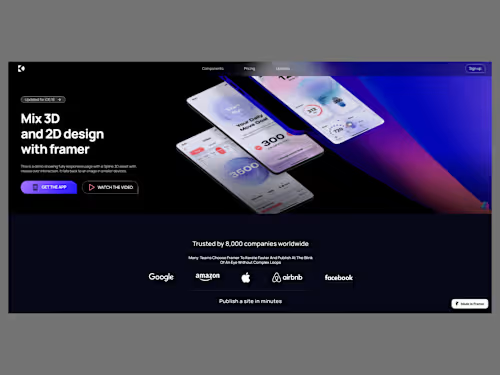
100% responsive No-code Business and commercial websites
Contact for pricing
About this service
Summary
Process
What's included
Fully Functional Website
A complete, and responsive live website built using a no-code platform called Framer, ready for the client to use or launch.
Design Files
The design assets or components used in the website, which might include images, icons, logos, and any other visual elements created during the project.
Documentation
A guide or manual explaining how to manage, update, or maintain the website, including instructions for making future changes without your assistance.
Prototype or Wireframes
Early-stage designs or prototypes used to illustrate the website’s structure and flow before the full build.
Responsive Design
Ensuring the website is optimized for both desktop and mobile devices, possibly with separate design files or notes for each version.
Training or Consultation
Providing a session or documentation to help the client understand how to manage the website on their own.
Revisions
Any rounds of revisions or updates that were agreed upon as part of the gig, ensuring the final product meets the client's expectations.
Skills and tools
Web Designer
UX Designer
Framer Designer

Figma

Framer

Notion
